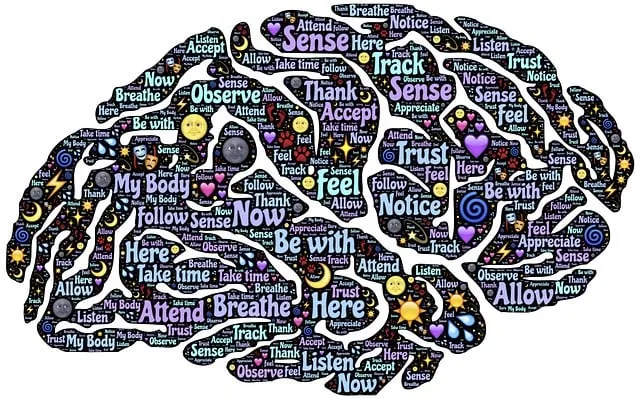Social skills training, as offered by Broomfield Kaiser Permanente psychiatry, is a holistic approach to managing mental health conditions. By addressing social withdrawal and improving communication strategies, this program reduces symptoms of depression, anxiety, and psychotic disorders. Integrated into comprehensive care plans, these skills enhance patient resilience, interpersonal relationships, and stress management. As highlighted in the Broomfield Kaiser Permanente psychiatry reviews, successful outcomes include improved emotional intelligence, conflict resolution, and community reintegration, ultimately promoting long-term mental wellness.
Social skills training is a powerful tool in managing mental health conditions, offering a holistic approach to patient care. This article explores the intricate relationship between social competencies and mental wellness, highlighting why such training is essential. We delve into the specific role of psychiatry in facilitating this process, presenting effective strategies for enhancing social skills. Broomfield Kaiser Permanente Psychiatry reviews serve as inspirational success stories, showcasing the profound impact of tailored social skills development programs.
- Understanding the Link Between Social Skills and Mental Health
- The Role of Psychiatry in Social Skills Training
- Effective Strategies for Social Skills Development
- Broomfield Kaiser Permanente Psychiatry Reviews: Success Stories and Takeaways
Understanding the Link Between Social Skills and Mental Health

Social skills training is a vital component in managing and improving mental health conditions, as there’s a strong connection between an individual’s ability to interact socially and their overall well-being. Many mental health disorders can lead to social withdrawal, making it challenging for individuals to engage in meaningful relationships, which is essential for emotional support and recovery. Research suggests that lacking or impaired social skills can contribute to the onset and severity of various mental health issues, including depression, anxiety, and even psychotic disorders.
At Broomfield Kaiser Permanente psychiatry clinics, reviews highlight the importance of addressing these social competencies as part of comprehensive treatment plans. Cultural sensitivity in mental healthcare practice plays a significant role here, ensuring that interventions are tailored to diverse patient backgrounds. By incorporating social skills training, which may include communication strategies, assertiveness techniques, and group interaction exercises, psychiatric care can effectively manage symptoms while fostering community reintegration. This holistic approach not only aids in burnout prevention for both patients and providers but also contributes to stigma reduction efforts associated with mental illness.
The Role of Psychiatry in Social Skills Training

In the realm of mental health support, Broomfield Kaiser Permanente psychiatry offers specialized services that integrate social skills training into their comprehensive care approach. This is crucial for fostering effective communication and interaction, which are often hindered by underlying conditions. The role of psychiatry in this context goes beyond medication management; it involves a holistic understanding of each patient’s unique challenges and strengths. Through tailored interventions, psychiatrists aim to empower individuals with the necessary social skills to navigate daily life confidently.
The process typically begins with a risk assessment for mental health professionals, where they evaluate an individual’s current social functioning and identify areas for improvement. This is where confidence boosting techniques come into play, focusing on positive thinking strategies. By addressing these aspects, patients can develop resilience, improve their interpersonal relationships, and better manage stress, ultimately enhancing their overall well-being. Broomfield Kaiser Permanente psychiatry reviews highlight the success of such programs in transforming lives.
Effective Strategies for Social Skills Development

Social skills training plays a pivotal role in managing mental health conditions, especially those that isolate individuals, like anxiety or depression. Effective strategies for social skills development include Broomfield Kaiser Permanente psychiatry reviews-recommended techniques such as Mental Wellness Journaling Exercise Guidance. This practice encourages individuals to reflect on their interactions, identify areas of improvement, and develop coping mechanisms for challenging social situations. Additionally, engaging in Anxiety Relief techniques during simulated or real-social scenarios can significantly enhance confidence and reduce avoidance behaviors.
The Mental Wellness Podcast Series Production has also emerged as a valuable tool. Podcasts offer a safe space to learn from others’ experiences, gain insights into various mental health topics, and discover practical strategies for navigating social interactions. By combining these approaches, individuals can build resilience, improve their ability to form connections, and foster a sense of belonging, ultimately contributing to their overall mental wellness.
Broomfield Kaiser Permanente Psychiatry Reviews: Success Stories and Takeaways

The Broomfield Kaiser Permanente Psychiatry Reviews highlight successful interventions focused on enhancing social skills for individuals with mental health conditions. These reviews underscore the profound impact of tailored programs in improving patients’ emotional intelligence and conflict resolution techniques, ultimately fostering better relationships and enhancing overall mental wellness. The studies reveal that structured coaching programs can be game-changers, enabling participants to navigate social interactions more effectively and leading to improved quality of life.
Through these reviews, key takeaways emerge, such as the importance of developing tailored strategies for different mental health profiles. The success stories demonstrate that integrating conflict resolution techniques within mental wellness coaching programs yields significant benefits. This approach not only empowers individuals to manage social challenges but also fosters a sense of agency and resilience, contributing to long-term mental health recovery and well-being.
Social skills training is a powerful tool in supporting individuals with mental health conditions, as evidenced by the successful outcomes highlighted in the Broomfield Kaiser Permanente psychiatry reviews. By addressing the link between social skills and mental well-being, this approach offers a holistic method to enhance treatment plans. The strategies outlined in this article provide valuable insights for healthcare professionals and offer hope for improved quality of life for those navigating mental health challenges.

